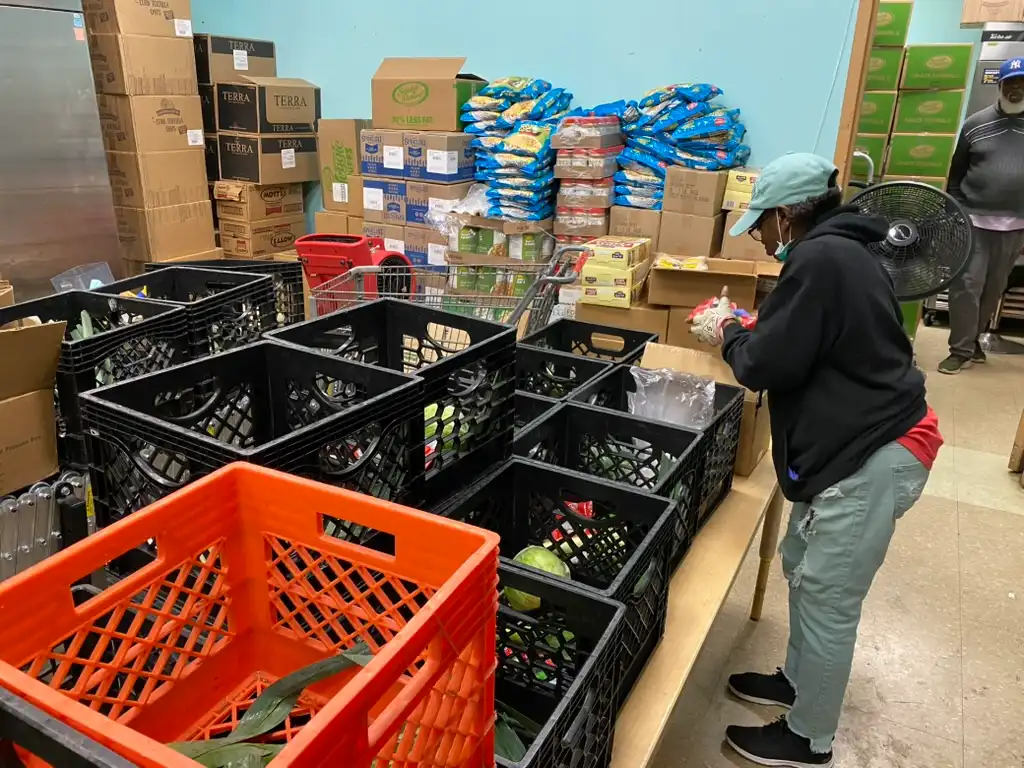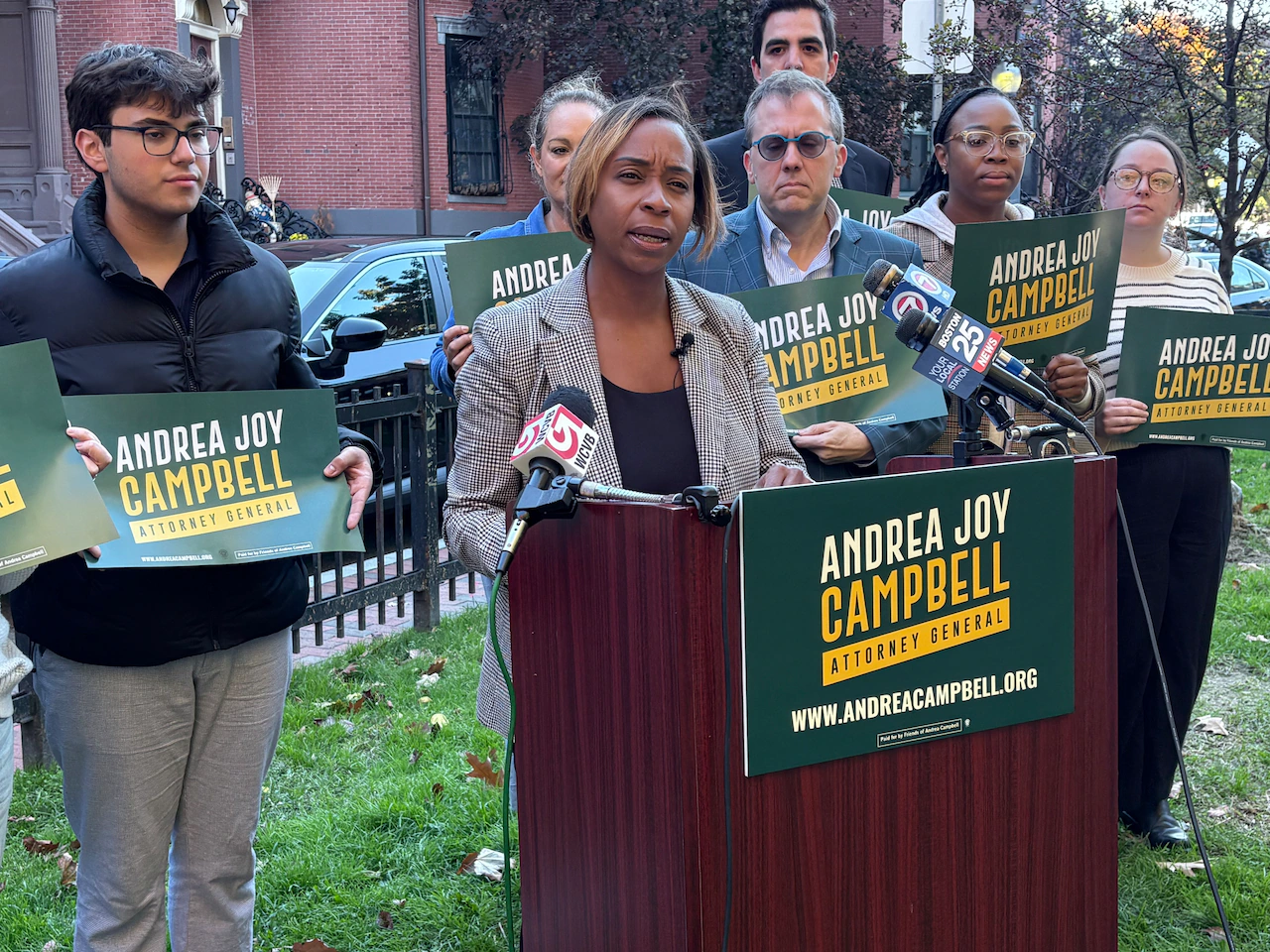Copyright AM New York

As the federal government shutdown stretched into its 22nd day Wednesday, staff and volunteers at a Harlem food pantry said the line outside has swelled to record highs — even before federal SNAP benefits are set to expire next month. At the Emma L. Bowen Community Service Center, a longtime Harlem institution that provides mental health, addiction treatment, and social services, the food pantry has already distributed more than 7,000 food packages by Oct. 21 — double last month’s total, according to internal figures. The center also logged 1,376 new clients this month, the largest single-month increase of the year. “We’ve seen this movie before, unfortunately,” said Lawrence Fowler, the center’s acting executive director. “We were hopeful that maybe we wouldn’t have to go through this again, but we wanted to be prepared. Already this month, we’ve distributed substantially more bags of food than we did in all of September.” The pantry, located at 1727 Amsterdam Ave., has been part of the Bowen Center since 1986. Fowler said food assistance has always been central to the center’s mission of “person-centered care.” “You are not your diagnosis,” Fowler said. “You are a person who is in need of support. Nobody functions well when they’re hungry. Being fed, being hungry — that’s part of the full dynamic of health. Food insecurity isn’t limited to the shutdown.” The pantry expanded its operating days from three to four days a week after the shutdown began on Oct. 1, when Congress failed to approve a resolution to fund the government. With more than 700,000 federal workers furloughed and paychecks halted, demand has soared. “We’ve adjusted our days before, during COVID, during the last shutdown,” Fowler said. “Our focus is always on meeting the need. We’ve distributed food as many as five days a week when we had to, and if this continues, that conversation has already begun again.” Even before the shutdown, food donations could barely keep up with demand Inside the pantry, deliveries from City Harvest, the Food Bank for New York City, and United Way have been steady. But Fowler said the need still outpaces supply. “No matter what we get, the reality is there’s never enough,” he said. “We’re very fortunate that our suppliers haven’t had problems getting us the food we need, but we know that can change quickly.” Pantry Supervisor Julio Miranda said the pace has been relentless. “We actually got three deliveries in one day,” he said. “By noon, we’re serving 150 to 180 people, and any given day we reach around 250. Sometimes at 7:30 in the morning, there’s already a line.” On Wednesday morning, more than a hundred people lined up outside the Bowen Center, the crowd steadily growing as they waited for their turn to pick up boxes of fresh vegetables and other produce of the day. To maintain order, the pantry has implemented a ticketing system to ensure that seniors, families with infants, and individuals with disabilities receive priority — and that anxious crowds are prevented from forming. “We don’t want to contribute to people’s anxiety,” Fowler said. “We want them to know they can rely on us.” While the pantry does not require federal employees to show identification, Fowler said his team has noticed clear changes in who’s coming. “We haven’t seen many federal IDs, but there’s no mistaking the uptick in traffic,” he said. “People tell us they’re having to choose between buying food and paying for medication. They’re making hard decisions.” Miranda added that it’s been difficult to tell who among the newcomers might be furloughed, “but I definitely see new faces every day.” To better understand that shift, the center recently began conducting an optional survey of pantry visitors. “We want to know who’s coming through the door,” Fowler explained. “That way we can be responsive and plan ahead — and connect with other organizations if we see that certain groups or workplaces are being hit hard.” The Bowen Center’s broader operations have also been affected by the shutdown. “A lot of our revenue comes from visits provided to Medicaid recipients,” Fowler said. “We’ve already seen some diminished cash flow as a result. But you create your contingency plan, you do the best you can. We’re still looking for public support. We remain in operation.” He added, “A little bit of this is about being agile instead of fragile. Based on what’s going on, we ask: what do we need, and how do we adjust?” ‘Times are hard’ The pantry is also preparing for a “double hit,” with the ongoing shutdown and the expected expiration of SNAP benefits in November, which could drive even more people to food pantries across the city. Fowler said his team has been “planning around that reality for weeks.” “The long answer to whether we’re concerned is yes,” he said. “The shutdown disrupts programs and has ripple effects. SNAP changes, Thanksgiving, the holidays — we’ve already placed our orders for those periods. However, we also need to manage the flow, ensuring we are both ordered and compassionate. We want people to be assured they’ll get food, without panic.” New York State has roughly 3 million SNAP recipients, including 1.4 million in New York City. The 13th congressional district, where the pantry operates, has about 220,000 recipients — the second-highest total in the state. Veteran volunteer Yvette Odom, who has served at the pantry for 30 years, said the demand is unlike anything she’s seen since COVID-19. “Times are hard,” she said. “They want to cut the benefits, and then you’ve got the government shut down. So now we’re going to get more people, because they don’t have benefits to really get the food that they need.” Fellow volunteer Mae Malloy agreed: “It’s been an uptick in clients. People are struggling right now, and the pantry is the way to not struggle. Nobody should ever be hungry; this is New York City.” According to Bowen Center data, the number of unique pantry clients rose from 2,993 in the first quarter of 2025 to 4,766 by August, with another sharp increase since the shutdown began. The pantry is now on track to distribute more than 100,000 food packages this year, up from its usual 89,000. Even as it braces for change, the organization is preparing to move to a temporary location at 520 West 135th St., where it expects to operate for about five years while its Amsterdam Avenue site is redeveloped for affordable housing. “The pandemic didn’t shut us down,” Fowler said. “We were open then, and we will continue to be open now.”



